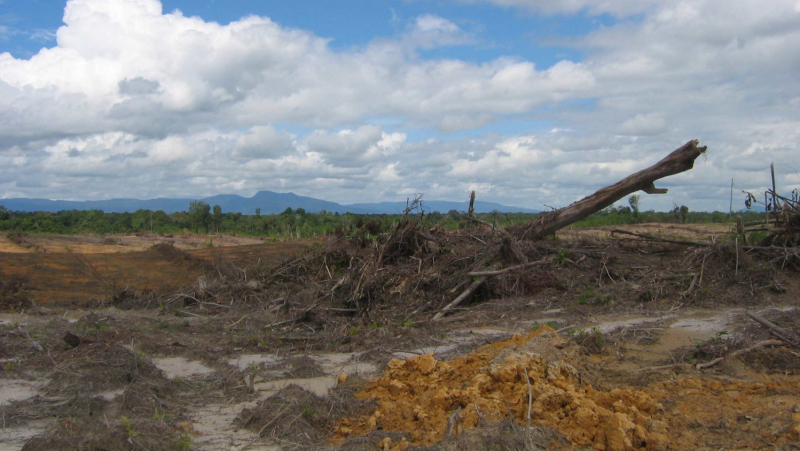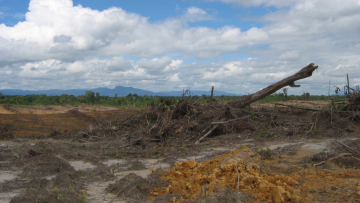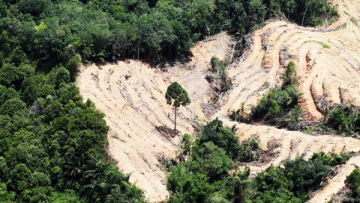Company – On record
This profile is no longer actively maintained, with the information now possibly out of dateBankTrack

Company – On record
This profile is no longer actively maintained, with the information now possibly out of dateBankTrack
Why this profile?
Indofood needs to address ongoing labour rights violations and adopt a comprehensive ‘No Deforestation, No Peatland, and No Exploitation’ policy that applies to Indofood, the entire Salim Group, and all third-party suppliers.
| Sectors | Agriculture for Palm Oil |
| Headquarters |
|
| Ownership |
Indofood is a subsidiary of the Salim Group, Indonesia's biggest conglomerate, owned by the Salim family. |
| Subsidiaries |
Salim Ivomas Pratama – Indonesia
|
| Website | http://www.indofood.com |
Established in 1968, Indofood is Indonesia’s largest food company. It also has the second largest oil palm land bank in Indonesia through its subsidiary Indofood Agri Resources. Indofood operates four business groups: Consumer branded products, Bogasari (produces mainly wheat flower), Agribusiness (palm oil production) and Distribution.
Indofood is Indonesia’s largest private palm oil company without an adequate ‘No Deforestation, No Peatland and No Exploitation’ policy, and a business partner and palm oil supplier to major global brands throughout the world. Indofood is a joint venture partner to PepsiCo—producing all PepsiCo-branded products within Indonesia — as well as Nestlé and Wilmar.
Social and human rights impacts
Violations of labor rights A June 2016 report by Rainforest Action Network (RAN) titled The Human Cost of Conflict Palm Oil, exposed Indofood's involvement in systemic violations of workers’ rights, including categorising many long-time workers as temporary and placing them at heightened risk through precarious employment practices; paying unethically low wages that often did not meet minimum wage; the presence of children working on the company's plantation as a result of setting unattainable quotas; putting workers’ health and safety at risk; and undermining Freedom of Association through automatic enrollment in a company-backed union.
A follow-up RAN investigation in November 2017, The Human Cost of Conflict Palm Oil Revisited, showed that these kinds of systemic labor violations on Indofood plantations were continuing. The report concludes that "Indofood's target-based system, coupled with the wide range of penalties which may be applied at the employer's discretion, an opaque system of pay, and ability to extract work under the menace of being paid below the minimum wage levels, creates a serious risk of forced labour."
Environmental and climate impacts
Deforestation and impact on peatlands According to an April 2018 report by Aidenvironment a satellite-based assessment of land development on Infofood's subsidiaries PT Duta Rendra Mulya and PT Sawit Khatulistiwa Lestari shows ongoing deforestation on peatlands from 2013 onwards. In total, the companies opened up 9,668 hectares of land for oil palm expansion, of which 99 percent was peatland.
The same report showed the sustainability impact of two palm oil plantations operated by Indofood sussidiaries in Sintang District, on the island of Borneo, Indonesia. Both plantation companies have continued to clear and drain the only large peat swamp forest in Sintang district, the Ketungau peat swamp, despite new regulations adopted by the Indonesian government and sustainability policies adopted by associate subsidiaries of the Salim Group, its business partners and financiers. An area, equivalant to nearly 10,000 rugby fields has been cleared for planting oil palm within a time span of just five years. This area, which was until recently an expansive peatswamp forest, will oxidize and ultimately disappear as a result of peatland subsidence, resulting in frequent and prolonged floods and considerable carbon emissions.
The Indonesian government, along with nearly three-quarters of all palm oil refiners in the world, prohibits peatland development for the expansion of oil palm plantations. Once developed, peat is extremely sensitive to fire, and if it catches, is very difficult to extinguish. Peat fires have been known to burn for months on end, despite efforts, and have been a major cause of the annual haze that envelopes Indonesia, Malaysia and Singapore (Aidenvironment, 2018).
Impact on climate change When peatlands are developed, an irreversible process of degradation starts that contributes significantly to global warming through massive carbon emissions. When peatlands are left intact, they act as a natural “carbon sink”, safely absorbing and storing carbon out of the atmosphere and under ground (Aidenvironment, 2018).
In 2015 5,900 hectares of carbon-rich peatland is confirmed to have burned in two Indofood concessions, corresponding to an estimated eight million tons of CO2 emissions (Chain Reaction Research, 2017).
Impacts on wild life PT Gunta Samba, a subsidiary of the Gunta Samba Group (controlled by Anthoni Salim), cleared thousands of hectares of orangutan habitat in the East Kutai district in East Kalimantan in Indonisia between 2012-2015 (Aidenvironment, 2018).
Other impacts
Roundtable on Sustainable Palm Oil (RSPO) In March 2019 the Roundtable on Sustainable Palm Oil (RSPO) terminated the membership of Indofood's subsidiaries, PT Salim Ivomas Pratama Tbk and PT PP London Sumatra Indonesia Tbk, for failure to undertake the necessary steps to comply with the 2 November 2018 decision delivered by the RSPO Complaints Panel. The RSPO found over twenty violations of the RSPO’s Principles and Criteria, as well as ten violations of Indonesian labor law, on the Indofood facilities audited.
As of March 31 2019, Indofood’s largest financiers include Indonesian banks Bank Mandiri and Bank Central Asia, followed by the three largest banks in Japan – Mizuho Financial Group, Sumitomo Mitsui Financial Group and Mitsubishi UFJ Financial Group. See below for a full specified overview.
Rabobank, Citi and Standard Chartered have reportedly cut ties with Indofood because of sustainability concerns at its subsidiary Indofood Agri Resources. The three banks combined credit facilities of USD 118 million were no longer listed in Indofoods 1H2019 financial statements.


